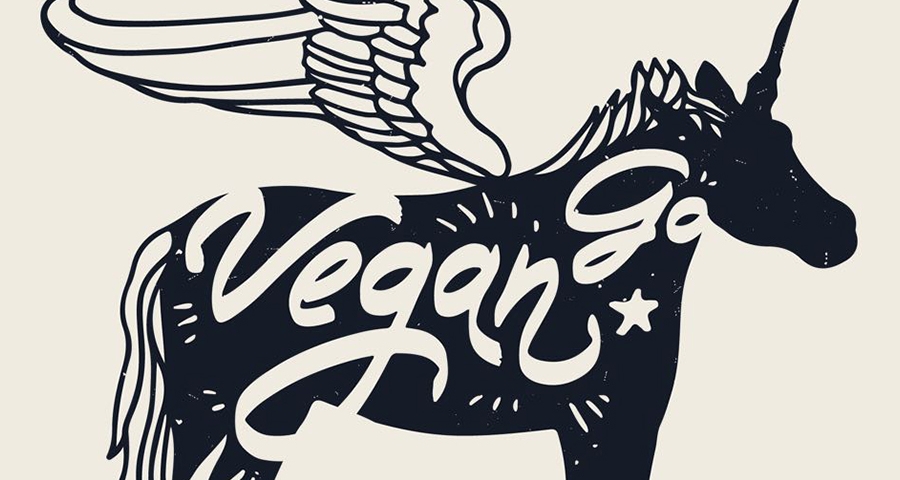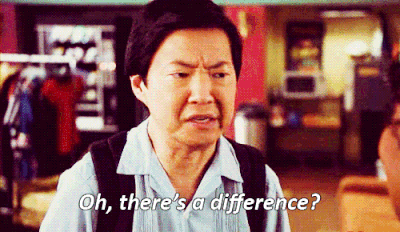Download Free Vegan Starter Kit -

13 Myths About Veganism That Just Aren’t True!
If you’re a vegan or have recently turned one, you’re probably surrounded by random assumptions about veganism coming from all corners – sometimes, even your own. If you’re NOT a vegan, it’s very likely that you have some concerns that graduate to mythical proportions when surrounded by ignorance and more speculation. Some of these concerns and assumptions are as mythical as the story our grandparents used to feed us about seeds – “If you swallow a seed, a tree will grow inside you”. A little background check on questions about veganism never hurt anybody. If we can Google cat pictures, we can Google questions about veganism too, people. But let us save you the trouble of doing even that.
Here are some of the most common myths about veganism!
1. Veganism and Vegetarianism are the same!
This is the most common assumption we’ve come across, especially in India, which has a fairly large vegetarian population. Vegans do not consume meat, eggs, milk or any dairy product derived from animals or containing animal sources. Vegetarians do not consume meat, but they do consume dairy products and in most cases, in large quantities.
.gif)
2. Vegans don’t get enough protein!
The common misinformation that people readily buy is that humans gain protein only from animal products. This is false. Plant-based protein sources are aplenty (Read: soya, lentils, pulses, broccoli, seaweed, peas and spinach, beans, brown rice, whole wheat bread and pasta, quinoa, peanuts, cashews, almonds, pistachios and walnuts)
Incidentally, the animals consumed for so-called protein are fed on the above plant-based protein diet. So you’re basically consuming the same plant-based protein but through dead tissue/extracted produce from an animal.
3. Plants have feelings.
Okay, let’s go back to school for a moment. Yes, plants do not have a central nervous system. But if you pick up fruits from a tree it will not really hurt them. It's just like clipping off a nail!

4. Honey is vegan.
“A bee secretes honey naturally, so consuming honey is vegan no?”
NO. Not really. Honey bees do secrete honey naturally, but for their own consumption, the same way a human mother secretes milk for her own baby. Moreover, honey is the winter storage for the entire beehive. Industrialising and consuming honey has and can lead to the bee population lessening. If bees stop pollinating, it directly affects the growth of plants and vegetable crops and the overall ecosystem.
5. Soy milk is the only alternative to animal milk.
There are plenty of other options for plant-based milk other than soy, although that might be the one most widely used. Coconut milk, almond milk, cashew milk, hazelnut milk, hemp milk, rice milk are a few of the other options that substitute easily for animal milk.

6. Soy protein leads to rising estrogen levels.
Soya does not affect testosterone in men. Soya contains isoflavones that bind with the same receptors in the body as estrogen but they are not the same. This is a common misconception. Moreover, plant-based estrogen, called phytoestrogen is different from animal-based estrogen (which is present in large quantities in milk) and extremely beneficial to female health and is especially known to be used in diets to combat breast cancer.
7. Veganism leads to malnutrition.
Quite the opposite, actually. A balanced vegan diet is known to boost the immune system, enable better heart function, provide more endurance and promote healthier skin.
.gif)
8. Being vegan means being healthy.
Okay, I know this is confusing, especially considering point number 7. But the point we’re trying to make here is that veganism does not guarantee good health. Like anything in life, you have to work hard at achieving it. You may be on a completely vegan diet, but if you consume oil-based products all the time and don’t exercise, no type of dairy-free lifestyle is going to help you lead a healthy life. It is important to maintain a balanced diet no matter what food you choose to eat.
9. Veganism applies only to food.
Agreed that veganism is widely connected to food and consumption, but it does not limit itself to that. Veganism is a way of life. It’s about not contributing to anything that leads to cruelty or damages the environment. Vegans generally avoid using lifestyle products that are tested on animals or contain traces of animal sources. They also avoid littering the environment and try to use natural and biodegradable products as far as possible.
.gif)
10. Being vegan damages relationships with family and others.
For a lot of people, becoming a vegan is a big (and necessary) change in their lifestyle. Like any change in life, it takes a while for the immediate surroundings to get used to it. Family members might object your choice because they might not be aware. This does not mean that this damages your relationship with them. They’ll only understand if you give them valid explanations behind this. It’s important to stand by your beliefs. After all, who will consciously object to you leading a nonviolent lifestyle?
11. It’s impossible to be vegan because animal products are in everything.
This argument is like saying, it’s impossible to not shoot people because guns are everywhere. It all comes down to your choice. It is true that the dairy industry has penetrated the F&B section alarmingly, but there are plenty of options available for those who choose not to consume animal-based products. Organic food is on the rise and plenty of plant-based nutrition is available in urban and rural areas. In the words of Albus Dumbledore, “Help will always be found at Hogwarts to those who ask for it.”
.gif)
12. Vegans care only about animals and not humans.
This is completely untrue. Veganism impacts human life just as much as it impacts animal life. By leading a vegan life, you’re automatically making our human world a more livable place as it directly impacts the environment and the quality of life we lead as a whole. A life led without cruelty will always create ripples of good around.
13. Veganism is expensive.
When you go to a supermarket, do you find vegetables to be priced higher than steak? At a restaurant, is vegetable pasta more expensive than bacon strips?
.gif)
You already have your answer. Veganism is not more expensive than a meat-eating lifestyle. Sure, the price of organic foods and cosmetics will be higher than the commercial animal-based ones in the market, but this is because of the demand-supply ratio. When the demand for organic products go up, the price will automatically come down. More importantly, your monthly budget will even itself out when you realize you’re not going to be purchasing a hell lot of animal products.
Like this?
Read: #VeganStories: THIS Is How I Turned Vegan Overnight!
Read More: THIS is How The Earthquake In Nepal Changed My Life!
AUTHOR

trending
2.png)
Be a Vegan First Informer
Send us buzzworthy news and updates
Explore
Contact Us
About Us
Stay Connected
Copyright ⓒ 2017-2023. VEGAN PASSION PRIVATE LIMITED. All Rights reserved.
For more information, please write to hello@veganfirst.com
Registered Office Address: 55, 2nd floor, lane 2, Westend Marg, Saidullajab, Near Saket Metro Station, New Delhi, Gadaipur, New Delhi South West Delhi, DL

2.png)

.png)

.png)
2.png)
2.png)


1.png)


1.png)
.png)